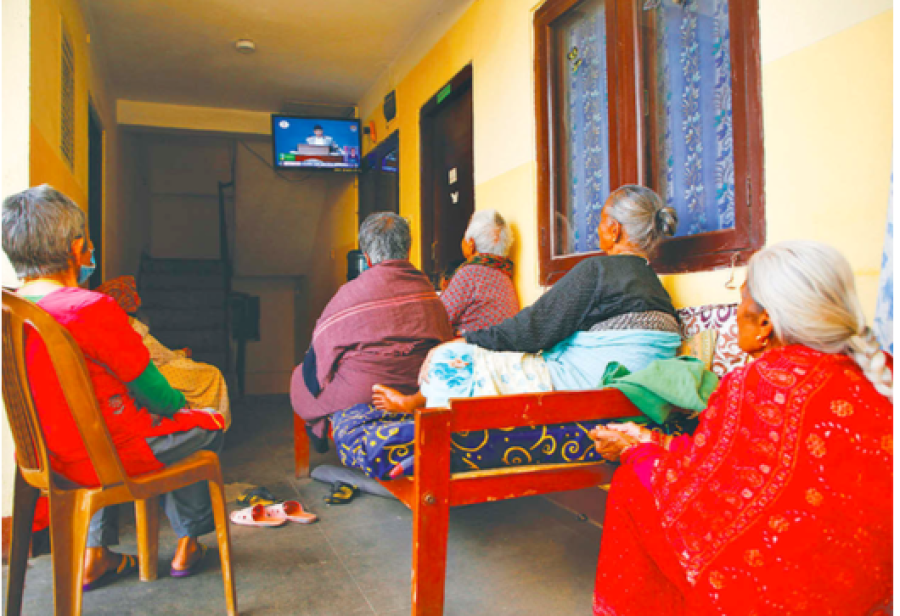National
Budget announces significant tax exemptions of up to 75 percent for micro and small industries
The budget for the upcoming fiscal year has sought to provide remedy to industries affected by Covid-19, including tourism, agriculture and small businesses.
Prithvi Man Shrestha
Finance Minister Yubaraj Khatiwada on Thursday announced massive tax exemptions for micro and small enterprises, which have been hit hardest by the Covid-19 pandemic.
Presenting the budget for the upcoming 2020-21 fiscal year at a joint session of Parliament, Khatiwada announced that these enterprises would be eligible for income tax exemptions from 25 to 75 percent.
As per the announcement, small enterprises with annual turnovers of less than Rs2 million will be eligible for a tax exemption of 75 percent while those whose turnover is between Rs2 million and Rs50 million will be eligible for 50 percent tax exemption. Enterprises with an annual turnover between Rs5 million and Rs10 million will receive an exemption of 25 percent, according to the budget.
Enterprises with fixed assets up to Rs100 million are considered micro, cottage and small industries, according to the Industrial Enterprise Act.
According to Khatiwada, the budget has adjusted tax rates and provided tax exemption to assist in the recovery of enterprises, especially those related to agriculture, industry and services.
Small entrepreneurs have welcomed the tax exemptions.
“I have not seen such a large tax exemption in decades. It is a welcome move as small enterprises have been badly affected by the coronavirus,” said Umesh Prasad Singh, acting president of the Federation of Nepal Cottage and Small Industries. “This is a good provision, although we had asked that the government announce tax exemptions for two years.”
The budget has extended income tax exemptions for new micro-enterprises from five years to seven years while women-owned small enterprises will now receive tax exemptions for 10 years, up from seven.
There are also reductions in customs duty on the import of machinery and raw materials for macro and small enterprises, and enterprises related to livestock, agriculture and masks.
Reflecting a larger focus on agriculture, the budget has also reduced customs duty on the import of seeds and primary agricultural tools. In order to support local production, the customs duty and agriculture reform fees on the import of agricultural goods have been consequently raised.
According to the budget, the tourism industry, which includes aviation, hotel, travel, trekking and transport sectors, will also receive income tax exemptions of 20 percent in the next fiscal year.
Industries set up in industrial villages will receive income tax exemptions of 50 percent for five years after the beginning of operations. Consumer committees related to drinking water and sanitation won’t be required to pay income tax while income tax accumulated until the last fiscal year 2018-19, will be waived, the finance minister announced.
Consumer committees had been lobbying hard to remove the 25 percent income tax on saved earnings that the government was asking them to pay.
Cooperatives that operate in rural municipalities will no longer have to pay income tax, according to the new budgetary announcement. However, cooperatives operating in municipalities, sub-metropolitan cities and metropolitan cities will be required to pay five, seven and 10 percent income tax, respectively.
The government announced that the domestic pharmaceutical industry will get a waiver of value-added tax (VAT) on the import of raw materials, including on ethanol for the production of sanitisers. If such materials are procured from local enterprises, the paid VAT will be reimbursed, according to the budget. The exemption from customs duty on the import of raw materials also applies to ayurvedic medicines.
The finance minister also announced the removal of excise duty on about a dozen products without specifying them, the list of which is presented in the Financial Bill, a separate document.
Health risk taxes on tobacco products, including cigarettes, gutkha, cigars, and pan masala, have increased, following the tradition of increasing taxes on products that are hazardous to health. There is no change in taxes for alcohol.
There will be increases in excise duty for imported furniture, in order to protect the domestic furniture business, and customs duty on petroleum products, although the duty will remain the same for aviation fuel and cooking gas, to account for the impact of Covid-19 on aviation and households. Customs duty on gold and jewellery has also been increased, according to the budget.




 9.83°C Kathmandu
9.83°C Kathmandu














